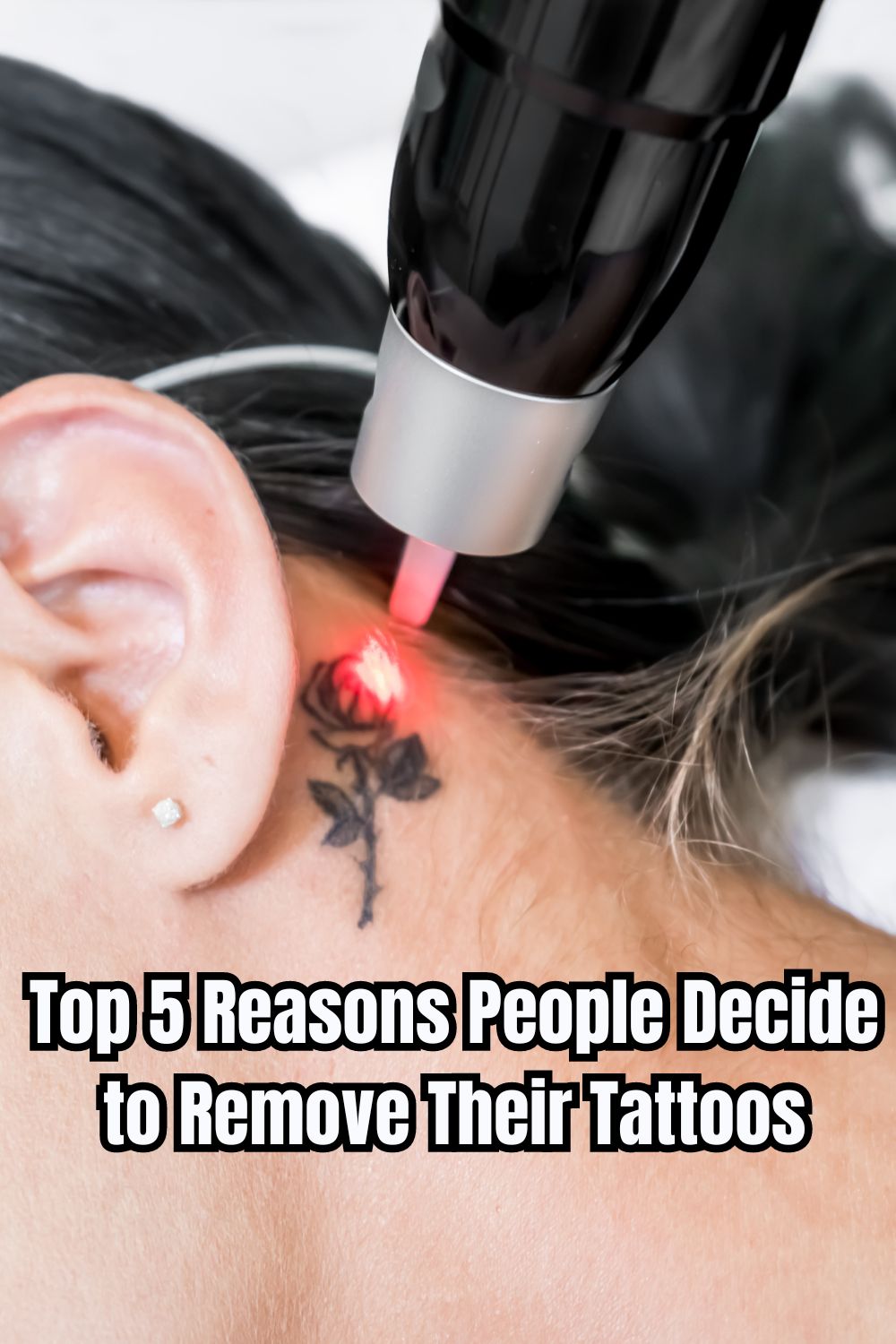Are you looking for ways to remove a tattoo? Here are the Top 5 Reasons People Decide to Remove Their Tattoos
Top 5 Reasons People Decide to Remove Their Tattoos
Tattoos have been a form of self-expression for centuries, allowing individuals to showcase their personality, beliefs, or memorable moments through permanent body art. However, as time passes, some people find themselves reconsidering their inked decisions. In this blog post, we’ll explore the top five reasons why people opt for tattoo removal, shedding light on the motivations behind this growing trend.
1. Career Advancement and Professional Image
One of the primary reasons individuals choose to remove their tattoos is career-related concerns. While societal attitudes towards tattoos have become more accepting in recent years, many professional environments still maintain conservative dress codes and appearance standards. Visible tattoos can sometimes be perceived as unprofessional or inappropriate in certain industries, potentially hindering career growth and opportunities.
For those climbing the corporate ladder or considering a career change, removing visible tattoos can be seen as a strategic move to enhance their professional image. This is particularly true for tattoos on hands, neck, or face, which are difficult to conceal with clothing. By opting for tattoo removal, individuals aim to align their appearance with industry expectations and increase their chances of success in the workplace.
2. Change in Personal Beliefs or Lifestyle
As people grow and evolve, their beliefs, values, and lifestyles often change. A tattoo that once held deep meaning or represented a particular phase of life may no longer resonate with the individual’s current identity. This disconnect can lead to a desire for removal, as the tattoo becomes a constant reminder of a past self or belief system that no longer aligns with their present values.
For instance, someone who got a religious symbol tattooed in their youth might later change their spiritual beliefs, making the tattoo feel inappropriate or uncomfortable. Similarly, tattoos related to past relationships, lifestyles, or subcultures may become irrelevant or even embarrassing as a person’s life circumstances change. Removing these tattoos allows individuals to move forward and present a more authentic version of themselves to the world.
3. Regret Over Poor Quality or Impulsive Decisions
Not all tattoos are created equal, and unfortunately, some people end up with artwork that doesn’t meet their expectations in terms of quality or design. Whether it’s due to an inexperienced artist, a hasty decision, or simply a design that didn’t translate well to skin, regret over poor-quality tattoos is a common reason for seeking removal.
Impulsive tattoo decisions, often made under the influence of alcohol or peer pressure, can also lead to regret. What seemed like a good idea in the moment may quickly lose its appeal in the sober light of day. As the initial excitement wears off, individuals may find themselves questioning their choice and looking for ways to undo their spontaneous decision.
For those dealing with regrettable tattoos, removal offers a chance to start fresh and potentially replace the unwanted ink with a more thoughtful and well-executed design in the future.
4. Fading and Aging of Tattoos
While tattoos are meant to be permanent, the reality is that they can change significantly over time. As skin ages and is exposed to environmental factors like sun and pollution, tattoos can fade, blur, or become distorted. Colors that were once vibrant may become dull, and fine lines can spread, altering the overall appearance of the artwork.
This natural aging process can be particularly noticeable with certain types of tattoos, such as those with intricate details or light colors. As the tattoo’s appearance deteriorates, some individuals may feel that it no longer represents the beautiful artwork they originally envisioned. In such cases, removal becomes an attractive option to eliminate the faded or distorted tattoo, either to leave the skin blank or to make way for a new, refreshed design.
5. Personal Growth and Moving On from the Past
Tattoos often serve as permanent reminders of specific moments, people, or phases in our lives. While this can be positive, it can also become a burden for those trying to move on from difficult or painful experiences. Tattoos associated with past traumas, toxic relationships, or challenging life events may act as constant triggers, hindering personal growth and emotional healing.
For many, the decision to remove a tattoo is part of a larger journey of self-improvement and letting go of the past. By eliminating these visual reminders, individuals can create a clean slate, both physically and emotionally. This process of removal can be therapeutic, symbolizing a fresh start and a commitment to personal growth and positive change.
The Process of Tattoo Removal
For those considering tattoo removal, it’s important to understand that the process has come a long way in recent years. Modern techniques, particularly laser tattoo removal in Long Island, NY and other urban centers, offer effective and relatively safe options for those looking to erase their ink. However, it’s crucial to note that tattoo removal is typically a multi-session process that requires patience and can be costly.
Before deciding on tattoo removal, it’s advisable to consult with a qualified professional who can assess the tattoo and provide realistic expectations about the removal process, potential outcomes, and any risks involved.
Conclusion
The decision to remove a tattoo is deeply personal and can be motivated by a variety of factors. Whether it’s for professional reasons, personal growth, or simply a change of heart, tattoo removal offers individuals the opportunity to redefine their appearance and align their body art with their current selves.
As tattoo culture continues to evolve, so too does the acceptance and availability of removal options. This balance allows people to express themselves through body art while also providing a way out if those expressions no longer serve them. Ultimately, the choice to keep or remove a tattoo lies with the individual, reflecting the dynamic nature of personal identity and the ever-changing journey of self-expression.

Leave A Reply!